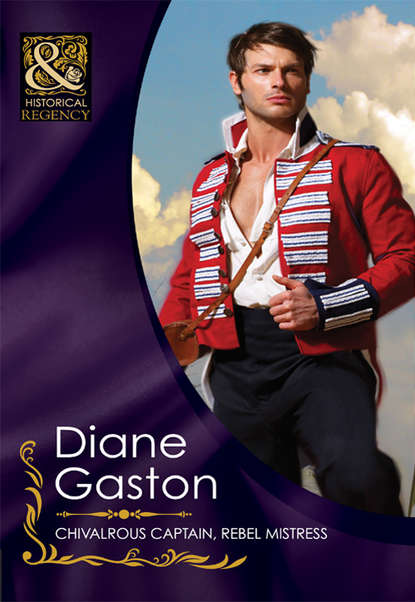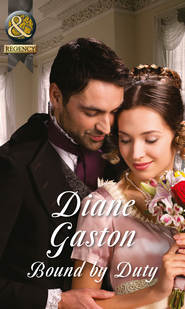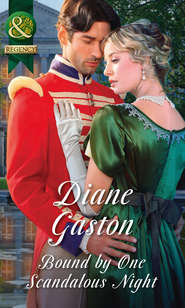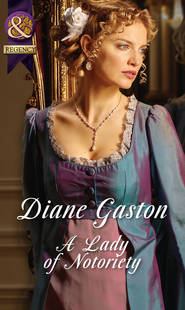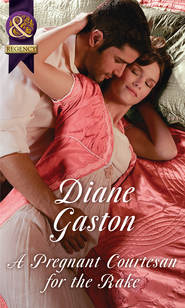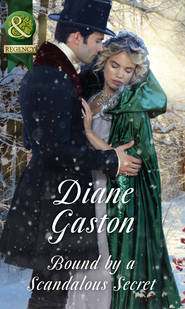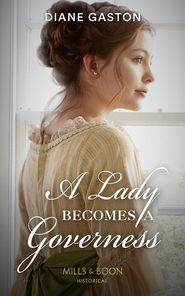По всем вопросам обращайтесь на: info@litportal.ru
(©) 2003-2024.
✖
Chivalrous Captain, Rebel Mistress
Настройки чтения
Размер шрифта
Высота строк
Поля
Water. Of course. They must be very thirsty. She was thirsty, as a matter of fact. She went in search of the kitchen, but found its pump dry. There was a well in the middle of the courtyard, near the stables, she remembered. She found a fairly clean bucket and ladle on the kitchen shelf and hurried back to the hall.
‘I’ll bring you water,’ she told the wounded men as she crossed the room to the château’s entrance.
When she stepped outside, the courtyard was filled with soldiers. Men at the walls fired and reloaded their muskets, others repositioned themselves or moved the wounded away. The fighting was right outside the gate. She could hear it. French musket balls might find their way into the courtyard, she feared.
Gathering all her courage, Marian started for the well. Before she reached it, a man shouted, ‘They’re coming in the gate!’
To her horror a huge French soldier, wielding an ax, hewed his way into the courtyard followed by others. It was a frightening sight as they hacked their way toward the château. Several Guardsmen set upon them. The huge Frenchman was knocked to the ground, and one of the Guards plunged a bayonet into his back.
‘Close the gate! Close the gate!’
Men pushed against the wooden gate as more French soldiers strained to get in. Without thinking, Marian dropped her bucket and added her slight strength to the effort to force the gates closed. Finally they secured it, but the fighting was still fierce between the British soldiers and the few Frenchmen who had made it inside.
Marian picked her way through the fighting and returned to the well. She pumped water into the bucket, her heart pounding at the carnage around her. When the bucket was full, one of the Guardsmen shoved a boy towards her, a French drummer boy, his drum still strapped to his chest.
‘Take him,’ the Guardsman said. ‘Keep him out of harm’s way.’
She took the boy’s hand and pulled him back to the château with her.
‘Restez ici, ‘ she ordered. Remain here.
The drummer boy sat immediately, hugging his drum, his eyes as huge as saucers.
Marian passed the water to the men and told them about the gate closing and about the drummer boy. A moment later, more men entered the château, needing tending.
Eventually the musket fire became sporadic, and she heard a man shout, ‘They’re retreating.’
She paused for a moment in thankful relief.
‘It is not over yet, lad,’ one of the wounded men told her. ‘D’you hear the guns?’ The pounding of artillery had started an hour ago. ‘We’re not rid of Boney yet. I wager you could see what is happening on the battlefield from the upper floors.’
‘Do you think so?’ Marian responded.
‘Go. Take a look-see.’ The man gestured to the stairway. ‘I’ll watch the drummer.’
She could not resist. She climbed the stairs to the highest floor. In each of the rooms Guardsmen manned the windows. One soldier turned towards her when Marian peeked into the room.
‘Where did you come from, lad?’ the man asked.
She remembered to lower her voice this time. ‘Brussels, sir. I came to see the battle.’
He laughed and gestured for her to approach. ‘Well, come see, then.’
The sight was terrifying. On one side thousands of French soldiers marched twenty-four-men deep and one hundred and fifty wide. The rhythmic beating of the French pas de charge wafted up to the château’s top windows. On the Allied Army side a regiment of Belgian soldiers fled the field. In between a red-coated soldier galloped across the ridge in full view of the French columns. Was it Captain Landon? Her throat constricted in anxiety.
Please let him be safe, she prayed.
‘Where are the English?’ There were no other soldiers in sight. Just the lone rider she imagined to be the captain.
‘Wellington’s got ‘em hiding, I expect.’ The soldier pointed out of the window. ‘See those hedges?’
She nodded.
‘Our boys are behind there, I’d wager.’
As the columns moved by the hedge, the crack of firearms could be heard. ‘Rifles,’ the soldier explained.
The columns edged away from the rifle fire and lost their formation. Suddenly a line of English soldiers rose up and fired upon them. Countless French soldiers fell as if they were in a game of skittles, but still others advanced until meeting the British line. The two sides began fighting hand to hand.
Marian turned away from the sight. ‘Napoleon has too many men.’
‘The Cuirassiers are coming.’ Anxiety sounded in the soldier’s voice. Cuirassiers were the French cavalry.
Marian felt like weeping, but she turned to watch the Cuirassiers on their powerful horses charging toward the English soldiers while the French drums still beat, over and over.
A battle was not glorious to watch, she thought, closing her eyes again. It was all about men wounded and men dying, not at all what she and Domina had imagined.
‘They’re breaking!’ the soldier said.
Marian could not bear to see her countrymen running away like the French had run from Hougoumont. Her chin trembled and her throat constricted with unspent tears.
‘I’ll be damned.’ The soldier whistled. ‘If that is not a sight.’
Marian opened her eyes.
The French, not the British, had broken from their lines and were running away. ‘I don’t understand. Why did they run?’
‘Who can tell?’ The soldier laughed. ‘Let’s be grateful they did.’
She was indeed grateful, but by now she knew not to ask if the battle was over. The French would try again and Napoleon was known to pull victory from the jaws of defeat.
Marian took a breath and mentally braced herself for whatever came next.
Allan rode the ridge. After taking MacDonnell’s message to Wellington, he searched for Picton, who seemed nowhere to be found. He’d settle for Tranville, then, for new orders. From the distance he’d seen the second siege of Hougoumont and gave a cheer when the French had again been repelled.
He reached his regiment, the Royal Scots, just as the French attacked. Artillery pummelled the French columns, but still men in the front ranks fought hard in hand-to-hand combat. Allan unsheathed his sword and rode into the thick of it.
The fighting was fierce and bloody. Fists flew and bayonets jabbed and the air filled with the thud of bodies slamming into each other, of grunts and growls and cries of pain. Allan slashed at the French soldiers, more than once slicing into their flesh as they were about to kill. They came at him, trying to pull him from his horse. He managed to keep both his horse and himself in one piece, but blood and mud splattered on to his clothing. By the time the French retreated his arm was leaden with fatigue, and he breathed hard from the effort of the battle.
For a mere moment he indulged in the relief of still being alive, but only for a moment. He quickly resumed his search for Picton and Tranville, but spied Gabriel Deane instead. He headed towards his friend. Gabe, too, would have fought without heed to his own survival and Allan said a silent prayer of thanks that he appeared unscathed. General Tranville had been always been unfair to Gabe, denying him promotion because Gabe’s father was in trade.
‘Gabe!’ he called. ‘Have you seen Picton?’
Gabe rode up to him. ‘Picton is dead. Shot right after he gave the order to attack.’
Allan bowed his head. ‘I am sorry to hear of it.’ The eccentric old soldier might have retired after this. ‘Where is Tranville, then?’
‘Struck down as well,’ Gabe answered.





